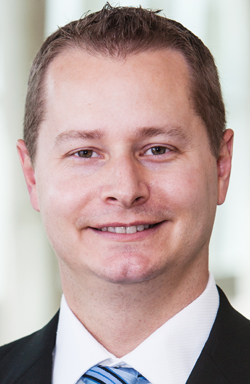Several UNMC officials and other health policy experts testified Tuesday during a busy day of university-related hearings in front of the Legislature’s Appropriations Committee.
All told, the committee heard testimony on bills dealing with:
- the university’s overall budget request.
- an economic competitiveness package that would fund development of the Nebraska Advanced Biomedical Technology Innovation and Discovery Institute (NABID) and provide operating funds for the Health Science Complex in Kearney.
- funding for pediatric cancer specialists and their research.
- behavioral health internships.
- pediatric oral health services.
- the study of health data systems.
- the construction and operations of the Global Center for Advanced Interprofessional Learning.
Chancellor Jeffrey P. Gold, M.D., testified on behalf of bills that would fund the construction and operations of the global center, which “will be a national leader and resource in the use of next-generation technology to provide hands-on, competency-based training for learners of all ages,” Dr. Gold said.
“Simulated clinics and hospital space would allow our students and other practitioners the opportunity to practice real-life scenarios in a virtual environment before treating a patient,” Dr. Gold said. “Because of this, the practitioners will make fewer errors in actual situations, decreasing costs and most importantly, improving patient outcomes.”
 |
Jim Stimpson, Ph.D. |
UNMC is seeking $25 million to build the center through LB 522. Private and other funds will pay for the remainder of the construction on the $102 million center. An accompanying bill, LB 533, would allocate $1.5 million in 2015-16, $3 million in 2016-17 and $5 million each year thereafter to operate the center.
University of Nebraska Interim President James Linder, M.D., and Board of Regents Chairman Bob Phares testified in support of the university’s 2015 legislative agenda.
In reviewing NU’s 2015-17 budget request, Dr. Linder noted that a stable base of state support is fundamental to the university’s ability to meet its core needs, such as salaries and benefits, utilities, IT and facility operations and maintenance, while also keeping tuition low compared to peers. He thanked policymakers for their history of recognizing the important role the university plays in ensuring Nebraska’s economic health and well-being and said their partnership is a key factor in NU’s current momentum.
NU’s budget request includes a 1 percent annual increase for core operations and a 3 percent annual increase for salaries for faculty and staff outside the collective bargaining units at the University of Nebraska at Omaha and University of Nebraska at Kearney. The salary increase, Linder said, would help the university keep up with peer institutions, many of whom are planning similar increases for the coming year. Salaries for NU’s non-unionized faculty and staff currently lag the peer averages by 6 to 9 percent, with some gaps even more significant.
Phares, in his testimony, briefed senators on NU’s Strategic Framework, which lays out goals related to affordable access, quality academic programs, workforce development, research excellence, outreach to Nebraskans and cost-effectiveness and accountability.
Other testifiers on Tuesday included:
- Dr. Jim Linder testified as to the importance of LB 154, which would provide $20 million in economic competitiveness funding toward several University of Nebraska projects, including the NABID Institute. The university provided letters from several companies regarding NABID, explaining how it would create jobs and strengthen the economy in Omaha.
- Joe Evans, Ph.D., director of psychology at the Munroe-Meyer Institute, testified in favor of LB 108, which would appropriate funds for behavioral health internships.
- Cancer physician-scientists Ken Cowan, M.D., Ph.D., Sarah Thayer, M.D., Ph.D., and Don Coulter, M.D., testified in favor of LB 110 and LB 417, which would provide funding for pediatric cancer specialists and pediatric cancer research.
- Jill Wallen, B.D.S., chairwoman of the College of Dentistry Department of Growth and Development, testified in favor of LB 436, which would appropriate funding for pediatric oral health services.
- Jim Stimpson, Ph.D., director of health policy in the College of Public Health, testified in favor of LB 593, which would look at the state’s multiple health data systems and try to determine ways for uniform information sharing and greater efficiency.
Bob Bartee, vice chancellor for external affairs at UNMC, commended the UNMC testifiers and the state senators who brought forward the proposals. Bartee noted that the busy week would continue for UNMC at the state Capitol, as university employees will testify on bills related to behavioral health and cannabidiol later this week.
“We’re grateful for the support and foresight that several state senators have shown in introducing these bills,” Bartee said. “The future of the state, the quality of health care and the well-being of our citizenry all could be positively influenced with passage of this legislation.”